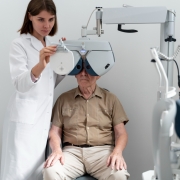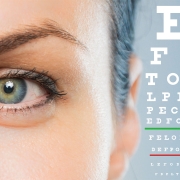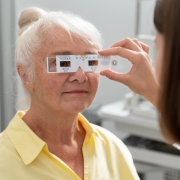Diabetic Retinopathy
If you live with diabetes, the importance of a diabetic eye exam cannot be overstated. There are complications that can occur with your chronic illness, one of which is diabetic retinopathy.
Diabetic retinopathy affects around a third of people with diabetes and can lead to blindness. At Nova Vision Center in Falls Church, VA, we want to help protect your sight with a diabetic eye exam that identifies the early stages of trouble with your vision.
What Is Diabetic Retinopathy?
Diabetic retinopathy is a condition that affects the retina, the part of the eye that helps transmit what you see to the brain. When you regularly have high blood sugar levels, the small blood vessels that connect to the retina can rupture. When they do, they can damage the retina.
After that happens, new blood vessels can grow, but that process can lead to your retina detaching or getting damaged. And, additional fluid in the region can negatively affect the macula (which allows you to see detail and color).
Repeated damage can lead to permanent vision loss.
What Are the Symptoms of Diabetic Retinopathy?
Diabetic retinopathy is most likely if you have high blood sugar levels combined with risk factors such as high cholesterol or high blood pressure.
Symptoms don’t usually occur during early stages. As the illness progresses, you may begin to notice double vision, blurry vision, floaters, or vision loss.
Get Diabetic Eye Care at Nova Vision Center
Diabetes can be a challenging disease, but with the right care, you can help prevent the complications of high blood sugars. At Nova Vision Center in Falls Church, VA, our diabetic eye exam is designed to detect early signs of trouble with your eyes and help you avoid vision loss. Contact us today to set up an appointment and protect your vision.











